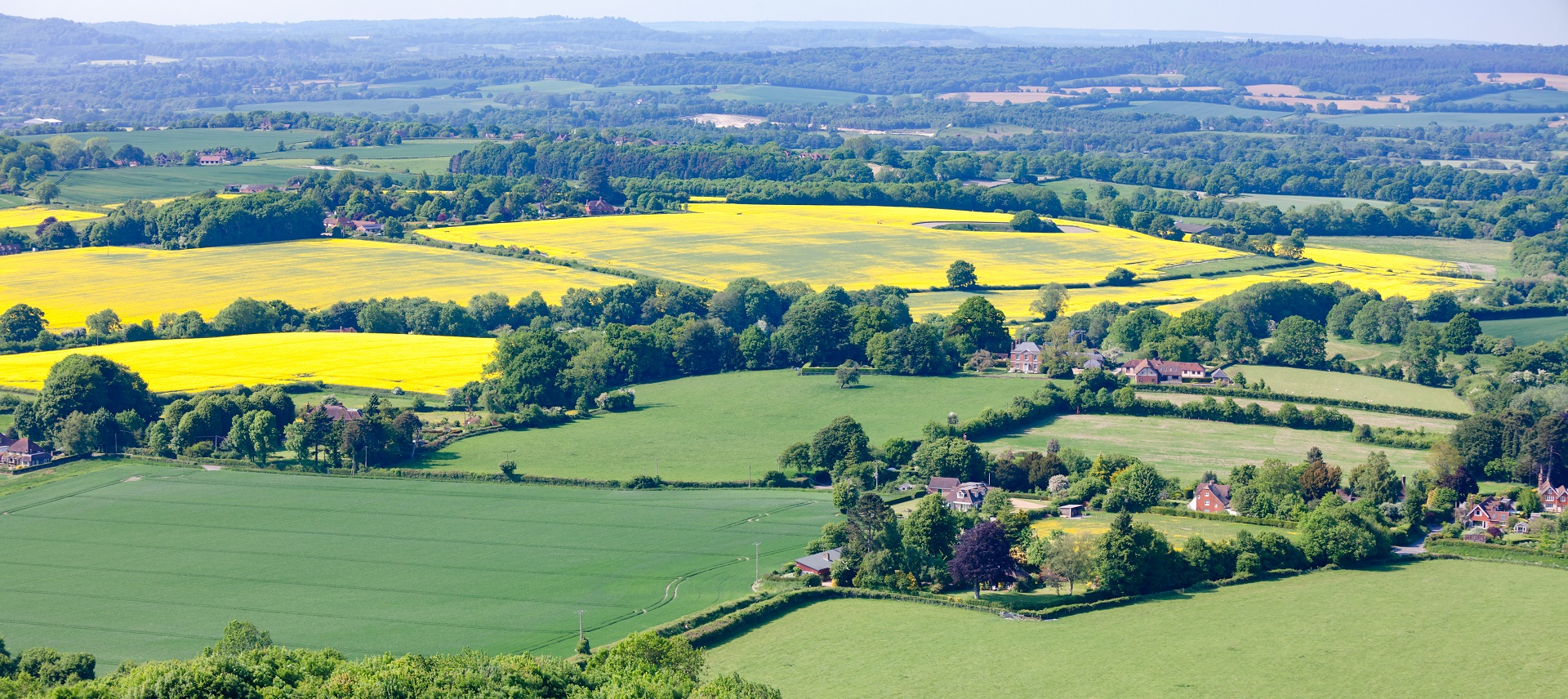
There has been an increased demand for acquiring rural land over the years, primarily for development purposes or to secure additional land for working farms. Hannah Hughes from Harrison Drury’s commercial property team points out the key considerations you need to make before selling part of your farmland.
Selling part of your farmland may seem a very attractive idea, however, the key to a successful land sale transaction is ensuring you thoroughly consider the proposal and logistics before committing to the sale.
The premium received on the sale of land can substantially vary depending on its location, the quality of the land and the intended use i.e. sale for development purposes vs sale for agricultural use. It is also important to consider the benefits or burdens of restrictive covenants attached to the land which may also play a part in the valuation of the land, these may include planning restrictions or development restrictions and should be discussed with your land agent and solicitor at an early stage.
What are the financial considerations before committing to a part land sale?
There are a many financial factors and tax implications that should be considered before making the decision to sell a parcel of land. These include:
- Do you have a mortgage secured against the property? If you do, your lender will need to agree to the sale as the land being sold will need to be released from the lender’s security. This may mean a payment is due to the lender in order for the release to be completed.
- Tax implications should be taken into consideration: These may include income tax, capital gains tax, inheritance tax, value added tax and stamp duty land tax all of which need to be planned for and advice from accountants at the outset should be taken.
- What could happen to the value of your retained property as a result of the sale? Could the sale have a negative impact? Does the premium for the sale outweigh that impact?
We strongly recommend that as well as seeking legal advice, you should also seek advice regarding these tax and financial implications. Our rural sector team can put you in touch with business partners who can assist you with these matters.
Should you negotiate overage payments?
In essence, an overage payment is a right for the landowner to receive future payments for a set period of time in respect of land which has been sold. It is also known and referred to as a ‘clawback’.
The right is triggered by the happening of a certain event, for example the grant of planning permission for a particular use, for example, land was sold for agricultural purposes but in the future, planning was obtained for residential development increasing the value of the land.
There are many issues to consider that cannot be fully covered in this blog post about the consideration of overage payments. However, landowners, with the help of a land agent, need to carefully consider whether such an agreement should be part of the land sale.
The basics of such an agreement would include: how long will the overage last; what is the ‘trigger event’, what are the obligations on the parties; what percentage of uplift in value is the landowner seeking; and how is this payment calculated.
Outlining restrictions and rights to the sold land
By selling only part of your farmland, it may still be necessary to share amenities and maintain shared boundaries with the buyer. Factors for consideration include:
- What rights will your retained property need? Including rights of way, rights to access field drains, septic tanks, boundary features.
- What rights will the land you are selling need? If a right of way is to be granted through your retained land, is the buyer to be responsible for contributing towards the maintenance of the access? Will the buyer need rights to access your retained land to make connections to any existing services including water, gas and electricity?
- Think about the maintenance and ownership of shared boundaries. Should they be jointly owned and maintained?
Defining the future use of the sold land
You may want to place restrictions on the buyer which will tie the property being sold. Examples of restrictive covenants include:
- Not to use the land for any purpose other than grazing.
- Not to build more than one private residential dwelling on the land.
- Not to use the access for the passage of vehicles exceeding a certain weight.
- Not to keep any animals or livestock on the property.
These are just a sample of some of the restrictions you come across in land sales. There are many others you should explore and discuss with your legal advisors to ensure they are tailored to your sale and your requirements now and in the future.
Other factors for consideration
- Who are you selling your land to? Is it to a neighbour who wishes to extend their own land or is it to a developer who wants to erect houses on the land?
- What could be the impact on the buyer’s intended use of the land?
- Should you sell with or without planning permission in place? What would be the difference in value?
- Be sure to be clear whether land is being sold subject to a tenant’s occupation. If the intention is for the tenant to vacate, seek legal advice on termination methods especially with agricultural tenancies.
Why should you consider these points before instructing a solicitor?
Considering the above points as a bare minimum is not only in your best interests but also assists in providing clear instructions from the outset. Your agent will be able to produce a set of Heads of Terms for the seller and buyer to agree, which your legal advisors will then rely on when producing the draft documents.
Ensuring your decisions and instructions are clear will help produce a detailed set of Heads of Terms which will ensure all parties start the transaction on the same page. The more detailed a set of Heads of Terms are, the better, as they will help to minimise delays and lengthy negotiations which can also lead to increased legal fees.
Selling part of land or a piece of land is usually more complex than selling the whole, however, with the right guidance from your legal advisors, land agents and accountants it can prove to be a successful decision. For further guidance please contact Harrison Drury’s rural sector team on 01772 258321.

